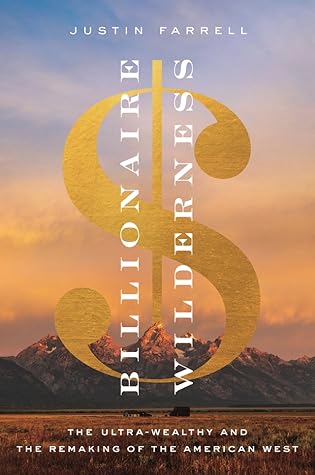More on this book
Community
Kindle Notes & Highlights
Started reading
April 17, 2023
She explains, trenchantly, and worth quoting in full: I think one of the biggest reasons why we have the problems we do in Jackson is that there historically hasn’t been ground up grassroots organizing … so here we have more nonprofits per capita than pretty much anywhere, but those nonprofits are philanthropically funded, they are not grassroots funded, so we have two hundred and some nonprofits, but nobody who is advocating about housing and that’s crazy.… So I think here you have a lot of individuals who individually are powerless and are getting screwed by the system. If people got
...more
Some realize that they need to enter formal politics in order to make change. Even newcomers to this country like Jose Cortez-García, who came with his three children seventeen years ago, is planning to run for office. “I am going to go into politics. I am going to talk about myself,” he says excitedly, alluding to his story of hard work and perseverance, and the barriers he’s experienced firsthand. “In my family, my wife and I work, and we work hard, we pay a lot of taxes, we pay a lot. I am killing myself to earn $3,000, and then there is this other person that earns $500,000, but this
...more
The problem is that these feelings aren’t mutual. The authenticity of these relationships proves to be a mirage because, according to the working poor, the ultra-wealthy are confusing their servants for their friends. Beneath this façade, the relationships are merely based on economic exchange and services rendered. Second, the working poor point out that authentic friends do not ignore suffering, especially when they have immense economic and political power to alleviate that suffering. Third, this veneer glosses over the harsh reality of living as an immigrant and a person of color in this
...more
Many Americans, including the people we interviewed from the low-income community, understand and accept the fact that other people have more money than they do. Even the existence of a noticeable income gap is not a problem for most. As one popular economic argument goes, and as some of our low-income respondents echoed: If everyone is getting wealthier, then why should we care if the rich are getting much richer? The problem for many people, though, is that an income gap as large as Teton County’s also creates a sizable opportunity gap. In such settings, folks at the bottom are no longer
...more
With regard to lack of proportionate ultra-wealthy taxation, extensive research shows that requiring more from multimillionaires will not prompt them to pack up and leave.6 This is likely more true in the rural West, with its captivating natural amenities. Thus, as fossil-fuel revenues in Wyoming continue to decline and the state desperately searches for new revenue to improve services such as education and technical skills training, politicians and community leaders would do well to reconsider their long-standing antipathy to tax revenue from the growing abundance of millionaire migrants—and
...more
Which leads to the second opportunity: increasing empathy. If community leaders, politicians, and leaders of institutions can again find ways to cultivate greater openness among wealthy and powerful residents—an openness that the ultra-wealthy likely did not have to the same degree in their less romantic urban or suburban areas from which they came—and to harness their peculiar desires for intimate connection to rural and Western culture, it may also increase the empathy they feel for neighbors, employees, and “friends” who are struggling nearby.


